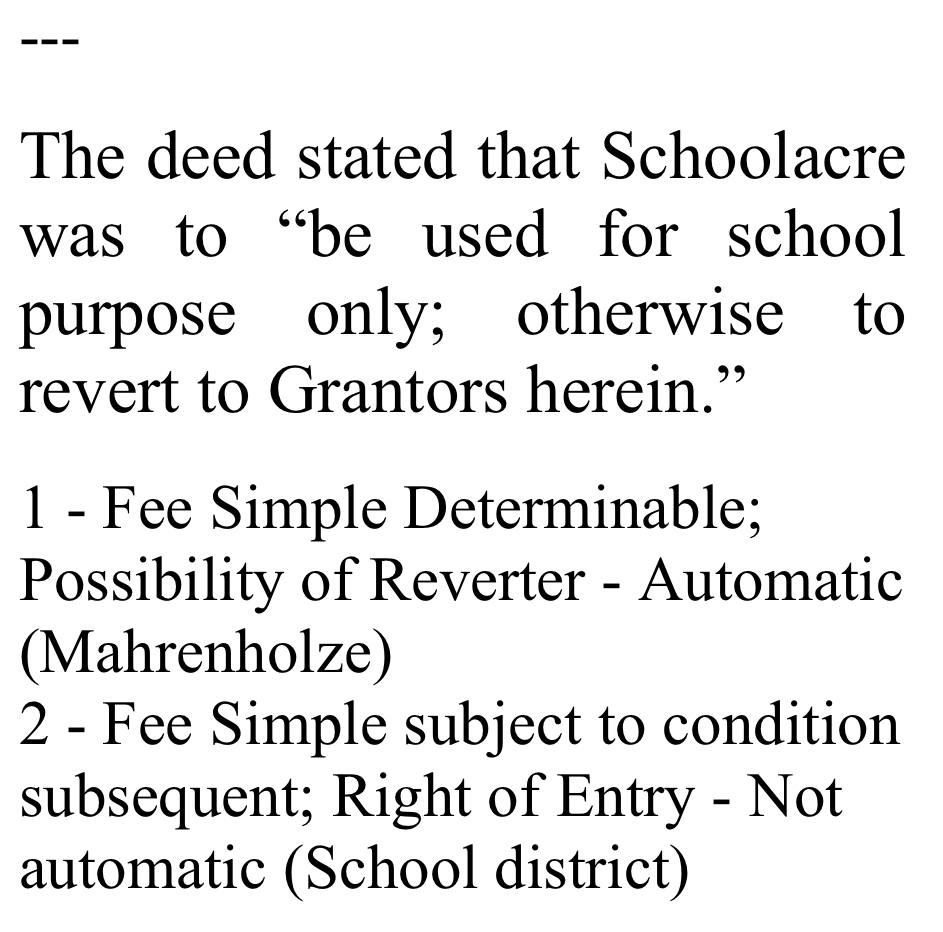When it came down to the importance of the wording of legal language in a fee simple defeasible, Mahrenholz v. County Board of School Trustees made all the difference between a fee simple determinable and a fee simple subject to condition subsequent.
These are simple facts of Mahrenholz v. County Board of School Trustees. Here are the parties: The plaintiffs are Herbert L. Mahrenholz and Betty Mahrenholz (Plaintiffs) and the defendants is County Board of School Trustees. Further, this case asked a Court to quiet title to property. Parties to this case wondered, “Is the property a fee simple determinable or a fee simple subject to condition subsequent?”
Here’s the issue in this case. Did the language of a conveyance properly convey an interest in real property?
The Court ruled this way. The Court rules the language of the deed conveys a fee simple determinable with a possibility of reverter.
That being said, this case is about fraud too. In this case, Harry Hutton sold an interest in land which he did not own, since this case ultimately ruled the land conveyed was a fee simple determinable. Nevertheless, in the end, the County Board of Trustees got the land, but previously Harry Hutton sold his interest in the land to the Jacqmains, which Harry did not own. It should be noted that Harry missed the statute of limitations to obtain his possibility of reverter.
Furthermore, this case teaches law students the importance of legal language in legal instruments. In this case of a fee simple determinable verses a fee simple subject to condition subsequent, the difference in legal language of the instrument comes down to simple punctuation; that is, a comma or a period in clauses makes all the difference in property law.
The court said “only” is duration language, so we have a fee simple determinable in this case.

Here the court said this language consistent with a fee simple determinable which is followed by a possibility of reverter.
Additionally, it should be noted that legal language has changed considerably from 1800s. Today, commas might be left out of legal instruments without too much thought, but, in the past, a simple comma in legal language can make all the difference in the world. A comma can determine who owns a piece of real property. As well, it should be mentioned that grammar and punctuation has changed from 2020 to 1800.
Notably, it should be said, land can be gained without having title. One way is adverse possession (title is sold after obtaining it) where a squatter can get title to land after squatting on it a number of years. Also, under the doctrine of conquest, land can be taken by force, which includes all title or claims to the land. These are just some ways of getting land without having title to it, which some may call fraud.
Briefly, I liked this case. It showed the difference between a fee simple determinable and a fee simple subject to condition subsequent. It all came down to a simple comma and durational language; nevertheless, this is the case with defeasible estates.